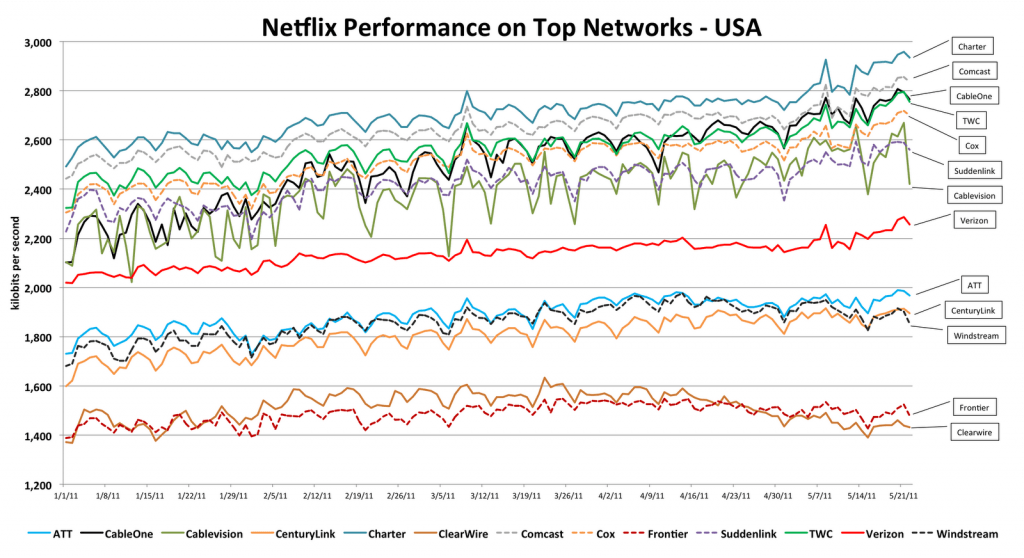 Bright House Networks, a cable company primarily serving Florida and other southeastern states says it has no plans to implement Internet Overcharging schemes like usage caps or consumption billing. But a company spokesperson went even farther, telling Tampa Bay Online the cable company was not even considering them.
Bright House Networks, a cable company primarily serving Florida and other southeastern states says it has no plans to implement Internet Overcharging schemes like usage caps or consumption billing. But a company spokesperson went even farther, telling Tampa Bay Online the cable company was not even considering them.
Bright House, which relies on Time Warner Cable’s programming negotiators and sells broadband under the Road Runner brand, was among the only companies in Florida that was willing to go on record stating they were not considering limiting broadband customers.
Other providers were unwilling to follow Bright House’s lead:
- AT&T: “2 percent of our customers were using 20 percent of our bandwidth,” said an AT&T spokesman, so the company slapped 150GB usage limits on DSL customers, 250GB on U-verse customers. The overlimit fee is $10 for every 50GB extra.
- Verizon Florida: “At this point, we’ve not implemented any usage controls or broadband caps. We’ll continue to evaluate what’s best to ensure our customers get the highest quality broadband service for the best value,” the company said. But it also added: “We’re continuing to evaluate usage-based pricing for our wireline broadband customers.”
“Bandwidth caps stifle consumer choice,” said Parul Desai, public policy counsel for Consumer’s Union. Desai notes customers do not sign up for pricey high-speed FiOS broadband service from companies like Verizon just to read e-mail. Customers who are willing to pay premium prices for super high speeds certainly don’t want a usage cap devaluing their broadband package.
 Comcast, for example, uniformly limits consumption to 250GB per month, even on high speed plans delivering over 50Mbps service.
Comcast, for example, uniformly limits consumption to 250GB per month, even on high speed plans delivering over 50Mbps service.
“It’s like building a rocket that you blow up after it reaches 250 feet into the air,” says Stop the Cap! reader Will in Tampa, who shared the article with us. “What is the point of having 50 or 100Mbps service from any provider if they slap a limit on it like that.”
Will thinks customers will abandon higher speed packages in droves once they realize they really can’t use them.
“With some of these companies talking about caps around 40GB per month, you can’t even take your connection for a test drive,” he says. “You might as well stick with basic speeds, just to remind and discourage you from putting yourself over their stupid limits.”
Desai suspects broadband companies will try limiting their customers, if only because they face few competitors consumers can use instead and they have video services to protect. But she suspects some consumers will either abandon or seriously downgrade their broadband service and find other ways to trade large files and content.
“It’s not inevitable they’re going to succeed,” she told TBO. “People only find value in broadband because of what they can access with it. If more people feel constrained, they’ll start looking for another way.”


 Subscribe
Subscribe





